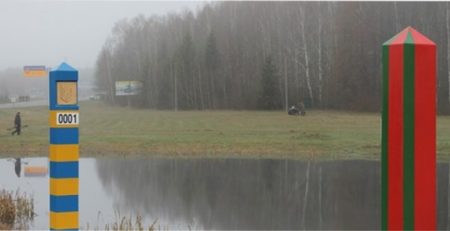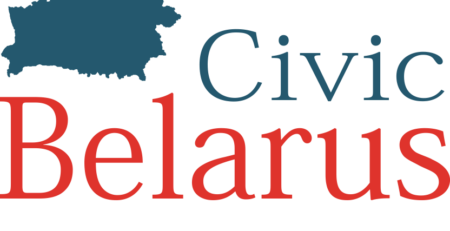“Platforma” is going to visit all prisons and penal colonies in Belarus
On October 6, 2014, the Department for Execution of Judgments of the Ministry of Interior issued a permit for the NGO “Platforma Innovation” to visit penitentiary institutions in Belarus.
No other independent NGO in Belarus has previously received such a permission. The head of the organization Alena Krasouskaya-Kaspyarovich talks about the protection of prisoners’ rights in Belarus and how such a permission can help “Platforma” to work more effectively.
— Your organization “Platforma” has been monitoring the rights of prisoners in Belarus for a long time. What main rights, in your opinion, are being violated?
Unfortunately, there are a lot of violations of human rights in the penitentiary system of Belarus. For instance, the violation of the right to work, the right to health care, the right for the access to legal counsel, the right to courteous treatment and many others. As a rule, in every prison, in addition to some common problems and violations, there are some local issues that a particular institution is “famous” for. For example, in the penal colony number 5 (Ivacevichi) the heating in some living quarters of prisoners is completely absent. There are radiators, but they are no pipes. During the winter a huge block of ice appears in the corner of one of these rooms and melts only by the beginning of summer. People live in such conditions for years! It is, however, an outrageous case, it should be noted that there is no ice in residential areas in other colonies.
It is fair to say that is not always the desire of employees to mock the prisoners and create intolerable conditions for them which causes the problems and violations. Sometimes the reason is simple lack of funding, which would eliminate most of the residential, social, and medical problems. However, every year less and less resources are allocated for the sustentation of prisoners, which, of course, does not improve the situation.
— How are you going to influence these by visiting the penitentiary institutions? What are the primary goals you set during the visits?
The visits to the institutions are only the beginning of our work to improve the situation in the penitentiary system. After having seen and evaluated what is happening behind the bars, and after having indentified the most pressing problems, we will work to resolve them. Our goal is not only to get an idea about what is bad in the colonies (prisons) and to pass this information to the public and the international human rights community, but also to find all the possible ways to improve the situation. Our goal is not just to tell more stories about the horrors of Belarusian prisons and colonies. Our goal is to minimize these horrors, so that in a few years we will be proud to say that the penitentiary system of the country is in line with European standards for prisons.
— How difficult was it to get permission for access to prisons? How is this stipulated in Belarusian law and how many more organizations can try to repeat your success?
I cannot say that in recent years we have made any particular efforts in order to get permission for access to the institutions of the penal system. The fact is that during the three years that “Platforma” exists we have periodically contacted the Department for Execution of Judgments (DIN MVD RB) and the Ministry of Interior with a request for access to penitentiary institutions. We have always got the standard response that it is unnecessary. The last request was sent in the end of September 2014 and we unexpectedly received a positive response. We think that it is our three-year long work, as well as the desire to find solutions to existing problems and a lack of intention to blacken everything that happens in the penal system that have resulted into such a decision.
Public control of penitentiary institutions in Belarus is stipulated in the legislation within the Penal Code. However, to this date, there only have been the Public Oversight Commissions (JSC) within the Ministry of Justice of the Republic of Belarus, which had the opportunity to visit the places of detention. Unfortunately, the reports of such visits caused more of an annoyance, because they painted a rosy picture of pioneer camps and ideal conditions in which, apparently, prisoners live.
I think that any human rights organization can also try to get access to penitentiary institutions. We will only be glad if this happens, since there are a lot of problems in the penal system of Belarus and there is enough work for everyone.
— Do you have any concerns that the Interior Ministry will only show you what it is ready to show? That they won’t show anything beyond exemplary cells and prisoners cooperating with the administration?
We, of course, have had such concerns. However, we have already held a series of meetings with the management of the Department for Execution of Judgments, where we discussed, among other things, our unwillingness to see and hear the “exemplary” cases. At the moment, we can already say that we are allowed to access any premises of penal institutions, except for, of course, the staff offices. The Ministry of Interior has indeed demonstrated a desire to work together and solve problems instead of writing useless reports about how well our prisoners live. “Platforma” is not an organization that seeks access to places of detention to improve their ranking or get more publicity. We really want to work, to solve problems, to improve the situation and the Interior Ministry knows that.
— The former director of the organization Andrei Bandarenka is now in prison himself. Are you planning to visit him?
We do not plan specifically to visit the penal colony where Andrei will serve his sentence. Let alone, at the moment we can only guess where he will be sent after the consideration of the appeal. However, we will certainly visit the colony where he will be, since we plan to visit all the institutions of the correctional system in Belarus.
For more information:
“Platforma Innovation” (formerly – “Platforma”) is a private cultural and educational institution established to protect the rights and legitimate interests of prisoners and people facing the judiciary system, the investigating authorities, and prejudicial inquiries.
“Platforma” is monitoring human rights observance in penal colonies and detention facilities. Over the past year the organization has repeatedly raised the issue of the use of physical force towards persons under arrest, suspects and convicted individuals.








